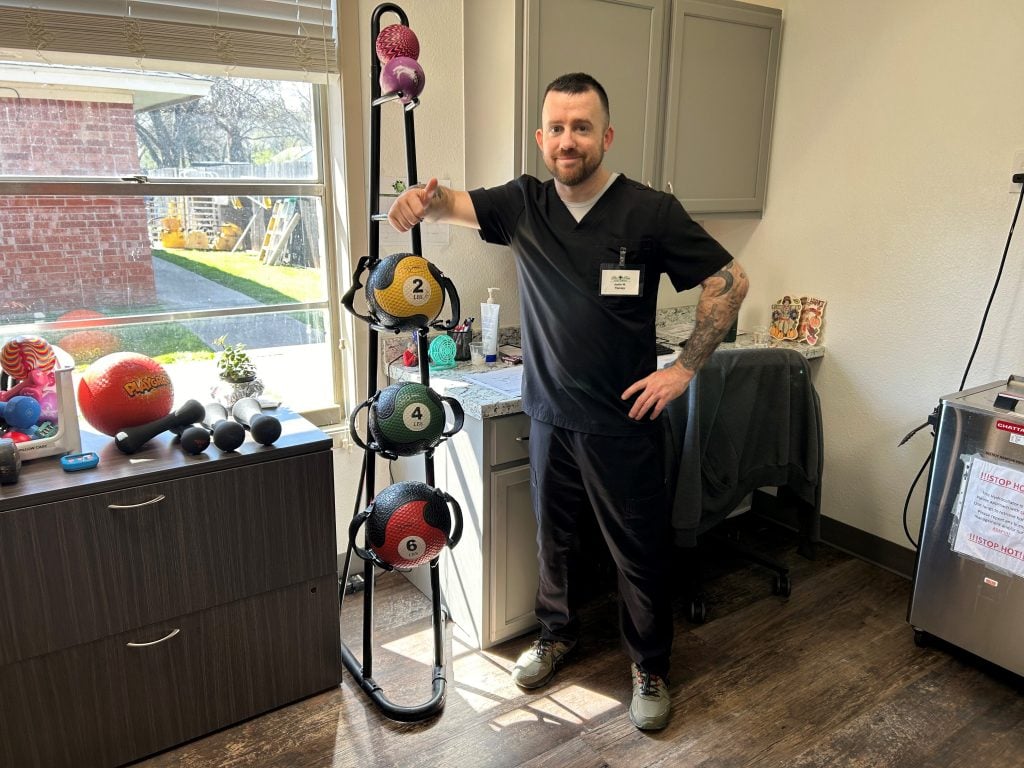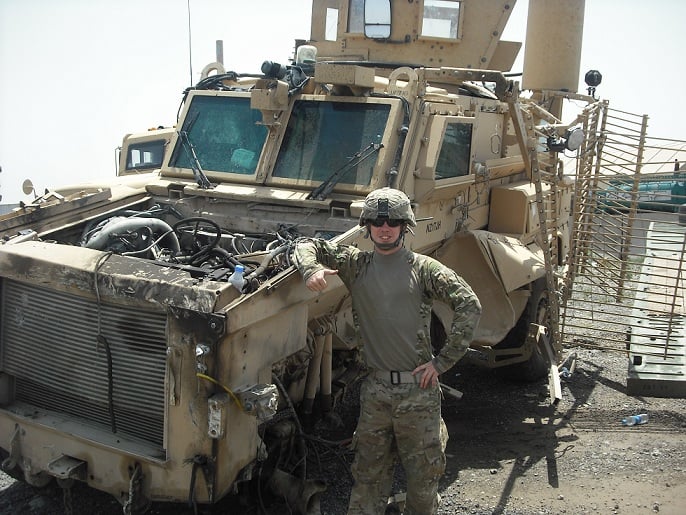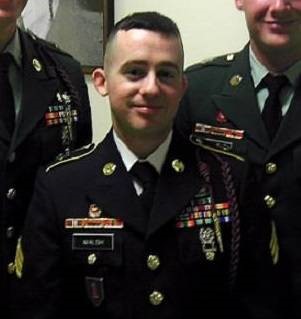
EDITOR'S NOTE: This story originally appeared in the April issue of GCU Magazine.
Justin Walsh was with Alpha Company in a place American forces nicknamed “The Valley of Death” — the Korangal Valley in Afghanistan.
The task facing the Taliban and other local insurgents was to clear routes of improvised explosive devices and ordnances, a dangerous duty depicted in Academy Award-nominated 2010 documentary “Restrepo.”
That was a while ago, in 2009, but the lessons stick with him today as one of many Grand Canyon University online students either in the military or veterans of it.
“It taught me patience,” said Walsh. “There were a lot of times when somebody got hit, a truck broke down, and we would be out on patrol and the higher ups tell us to stop, so we sit there for an hour or two waiting.”
For the Army’s Special Troops Battalion of the 1st Infantry Division’s 3rd Brigade, it wasn’t like waiting in rush hour traffic back home.
“It was pretty sketchy. One of our trucks got blown up. And we usually got some kind of small-arms fire, shooting at us from the other side of the valley.
“So you are out there, assuming something is going to happen.”

For Walsh, of Pilot Point, Texas, it wasn’t over after that year. He was deployed for another tour in Afghanistan near the Pakistan border in 2011-12.
The lessons the Army sergeant took with him were not over, either.
“(The experience) gives you a better sense how to live and how great life can be,” he said. “Enjoying life instead of staying in and being a recluse. Just valuing life a little better.
“Both times the welcome home ceremonies were some of the best times I have ever had.”
At Fort Hood, he said, smoke machines emitted a cloud that the returning troops ran through as they were introduced one by one to friends and family.
Upon his second return to Fort Knox, the troops were led by a police escort.
“I felt like a VIP,” he said.
I don't regret a single second of it. It was the greatest thing I could do with my life.
Justin Walsh
But once he decided to get out of the military the following year, he found himself working in a bottling plant 12 hours a day.
“That made me realize I had to use my G.I. Bill,” he said of veterans benefits for college or training programs.
He had to decide what to study and remembered one military experience.
“I helped with one of my friends who was shot during a training exercise. Since I was on rear detachment and close to getting out, I helped him and saw what they were doing with physical therapy,” he said.
Walsh earned an associate degree and became a physical therapy assistant in 2015. For the past seven years he has been working with patients in skilled nursing facilities.
“You get to see a lot of progress,” he said. “Every now and then people walk out of the door when they didn’t walk before. You get conversation and closeness with people. You build relationships.
“But it’s not all rainbows and sunshine.”
Wages and promotions at his level of education are stagnant, he said.
So when Walsh met a GCU representative in Texas, he thought it was time for a change. He would again use veterans benefits to further his education – this time online. He’s working toward a bachelor’s degree in applied business analytics.
“I count myself lucky. It’s been really smooth for me,” he said after six months in the program.
He’s finished his fourth class this spring.
GCU has an Online Military Division, where counselors work with military and veteran-affiliated students, said Sandra Rodriguez, associate vice president in the Military Division. Many of the counselors are also veterans.

Resources to support military students include the campus Veteran Resource Center and Veterans Affairs Office.
Walsh is relishing his return to college and says he has little baggage from the two dangerous deployments.
“I don’t regret a single second of it,” he said. “It was the greatest thing I could do with my life.”
He went after a new career because he said he’s good with numbers. He wants to either be a data scientist or enter a master’s program in business at GCU.
The former sergeant is thinking about “being a boss.”
And he’ll take one other lesson with him from the military as he gets married in May and continues his studies at GCU.
“Say you are overseas,” Walsh explained. “You don’t have a day off. You come back to the civilian world, and they are all about days off. I work six, seven days a week. Schooling is just one more thing on my plate.
“So it’s work ethic. Not finishing until the job is done.”
Grand Canyon University senior writer Mike Kilen can be reached at [email protected]
***
Related content:
GCU News: Officer, newly commissioned at GCU, carries on family's military tradition
GCU News: Emotional encounter with military veteran leads to GCU degree



































































